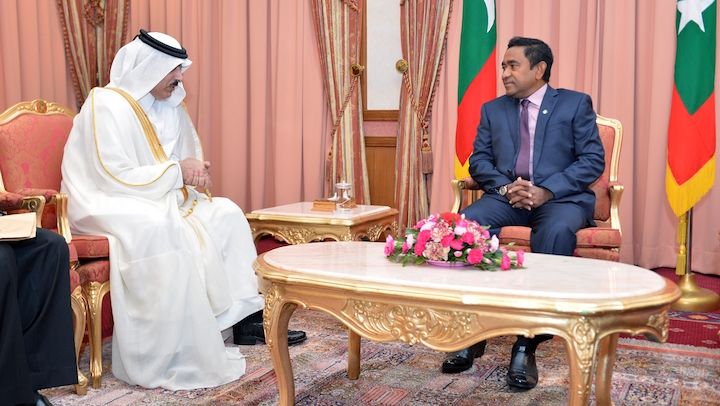Maldives severs diplomatic ties with Qatar
The foreign ministry claimed the government “took the decision because of its firm opposition to activities that encourage terrorism and extremism.”

05 Jun 2017, 9:00 AM
The Maldives has severed diplomatic relations with Qatar after Saudi Arabia, Egypt and four other Arab countries cut ties with the oil-rich Gulf state amid a growing diplomatic crisis.
The Maldives foreign ministry claimed in a brief statement that the government “took the decision because of its firm opposition to activities that encourage terrorism and extremism.”
It added that the Maldives has “always pursued a policy of promoting peace and stability in the Middle East” and reiterated “commitment to work with countries that promote peace, stability, and show solidarity in the fight against terrorism.”
The announcement came shortly after Saudi Arabia severed diplomatic ties and closed its borders with Qatar, accusing its Gulf neighbour of destabilising the region by supporting militant groups such as Islamic State and al-Qaeda as well as “Iranian-backed terrorist groups” in restive regions of Saudi Arabia and Bahrain.
Become a member
Get full access to our archive and personalise your experience.
Already a member?
Discussion
No comments yet. Be the first to share your thoughts!
No comments yet. Be the first to join the conversation!
Join the Conversation
Sign in to share your thoughts under an alias and take part in the discussion. Independent journalism thrives on open, respectful debate — your voice matters.




